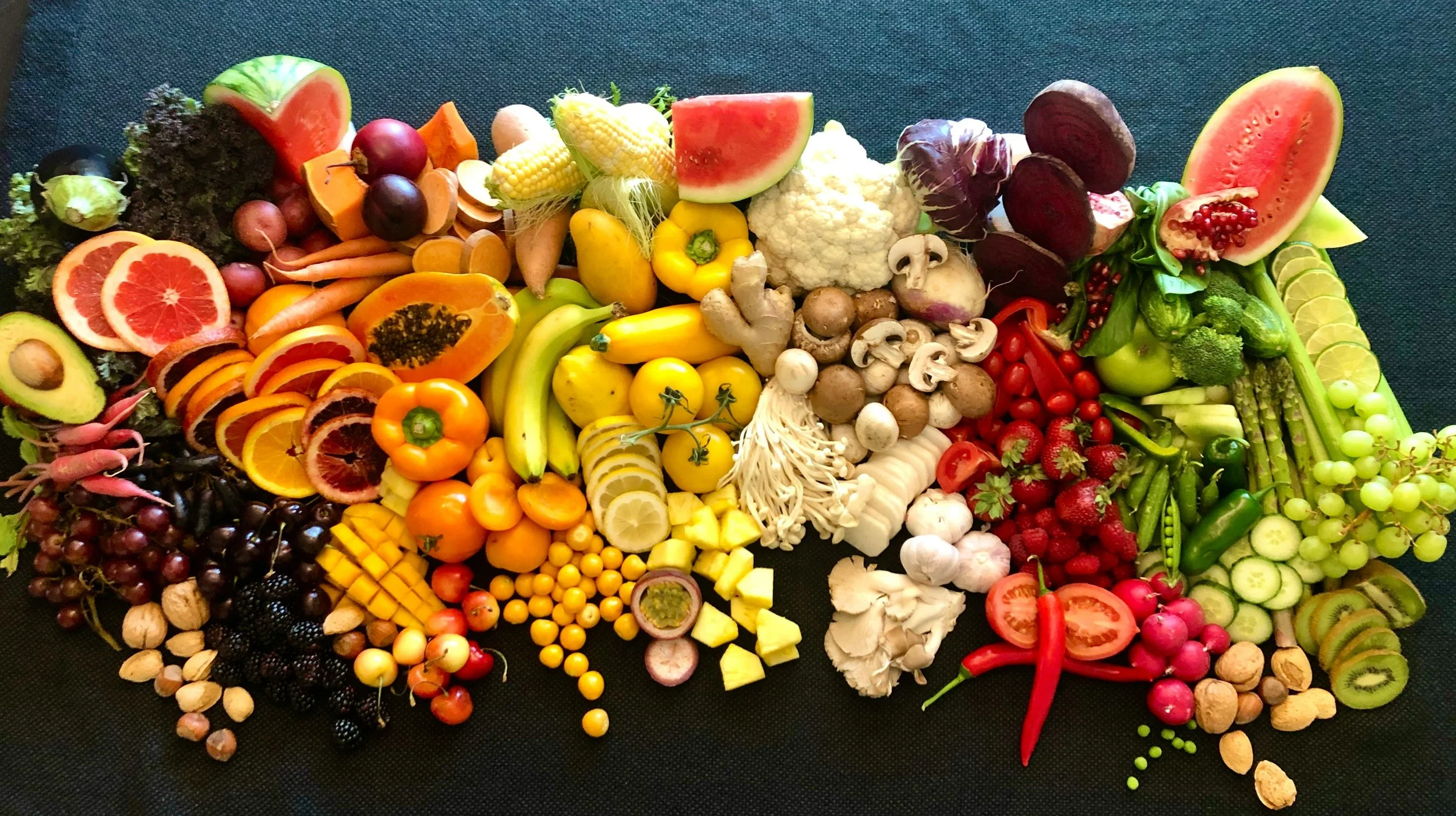Just about every day in my work with clients, digestive distress comes up—ranging from mild bloating and discomfort to chronic constipation and Inflammatory Bowel Disease (IBD), including Ulcerative colitis and Crohn's. Digestion truly is the foundation for health. If we’re not properly breaking down our food—or if there's a disruption anywhere along our long and complex digestive tract—then the essential nutrients we need aren’t getting into our cells, where they fuel our health and vitality.
According to the U.S. Institute of Medicine (IOM), the recommended daily fiber intake is ~38g/day for men under 50, and ~25g/day for women under 50. These recommendations may decrease slightly after age 50. It may come as no surprise that many people in the U.S. average much less (~15 g/day or so) which is well below recommendations.
The goal is to aim for ~25-38g of fiber for most healthy adults, emphasizing whole, minimally processed plant foods, but more (e.g. 38g) is reasonable, especially for those with higher caloric intake or specific needs
Types of Fiber & Why Variety Matters:
Soluble fiber dissolves in water, forming a gel-like substance.
→ Slows digestion, feeds gut bacteria (prebiotic), lowers cholesterol and blood sugar.
Insoluble fiber does not dissolve in water.
→ Adds bulk to stool, speeds up transit time, helps prevent constipation.
🧠 Note: Some soluble fibers are fermentable — because what matters for the microbiome is whether bacteria can ferment them (not just if they dissolve in water).
Fermentable fibers: fermentable fibers are those that gut bacteria can break down (ferment), producing short-chain fatty acids (SCFAs) like butyrate. Examples include inulin, pectins, gums, and resistant starch.
Non-fermentable fibers (or less fermentable): e.g. cellulose, lignins, which help with mechanical aspects (moving food along, stool bulk) and also contribute to gut barrier integrity.
It's important to emphasize a diversity of different fiber types to nourish different species of gut microbes and maintain overall digestive and metabolic health.
✅ Fiber Sources by Type
Oatmeal✅ High (beta-glucan)🚫 LowGreat for heart health, blood sugar
Beans & lentils✅ High✅ HighExcellent source of both types
Berries✅ Good✅ GoodSkin = insoluble, flesh = soluble
Leafy greens (kale, spinach)🚫 Low✅ HighNot fermentable, but important for gut motility
Cruciferous veggies (broccoli, cabbage)✅ Moderate✅ HighAlso contain compounds that modulate detox pathways
Apples, pears (with skin)✅ High (pectin)✅ HighSkin = insoluble, flesh = soluble
Nuts & seeds✅ Moderate✅ ModerateAlso provide fat and protein
Mushrooms✅ Soluble (beta-glucans)🚫 LowAlso support immune system
Whole grains (oats, quinoa,barley, brown rice)✅ Moderate✅ HighBetter choices than refined grains
Onions, garlic, leeks✅ High (inulin)🚫 LowGreat prebiotics
What fiber does behind the scenes to support digestion, metabolism, and overall health:
Soluble Fiber Benefits
Feeds gut bacteria → promotes butyrate and other SCFAs → lowers inflammation
Supports gut barrier integrity
Reduces LDL cholesterol
Improves insulin sensitivity
Supports immune regulation via microbial metabolites
Insoluble Fiber Benefits
Prevents constipation
Adds stool bulk & speeds up elimination
May reduce risk of colorectal cancer
Keeps gut lining stimulated (protective for gut health)
Daily Fiber Strategy
✅ Aim for ~25–38g/day total fiber- Increase fiber gradually so your microbiome can adapt—this helps prevent gas, bloating, and discomfort.
✅ Aim for diversity and get a mix of soluble & insoluble fiber
✅ Eat a wide range of plant foods (10+ different sources/week) whole foods, rather than supplements
✅ Include legumes daily if possible
✅ Include fermentable fibers (prebiotics) and non-fermentable for both microbiome feeding and mechanical regularity
✅ Use whole grains like oats, but don’t rely on them alone
Struggling with bloating, constipation, or inconsistent digestion?
You don’t have to navigate it alone — small changes in your diet
can make a big difference.
Let’s take a closer look at what’s going on in your gut
and map out a clear, personalized plan.
Schedule your free discovery call today - and take the first step toward feeling lighter,
clearer, and more in control of your health.
Your microbiome will thank you🐞
I'm Lisa Thompson, a Functional Nutritionist (FNTP) and I'd like to guide you on a journey to optimal health by providing education, support, accountability, motivation and inspiration. Using a holistic approach, I look deeply at how all of our inter-dependent systems work uniquely, and specifically in each of us- keeping in mind the bigger picture and LIFESTYLE choices that impact our well-being. For instance: how and when we eat, whether we get good sleep, what role exercise plays in our life, and how community, friends, family and belief systems impact our health and vitality.
I am currently taking new clients at this time and would love to work with you.
Email me: lisa@lisamarlenethompson.com



